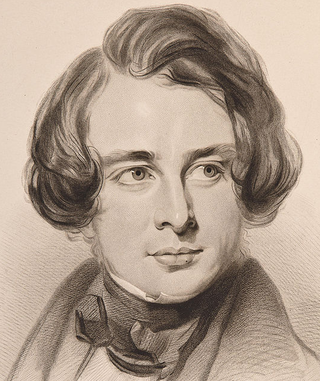Health
Charles Dickens, Savior of Children
Sometimes literature is more powerful than legislation.
Posted December 14, 2019 Reviewed by Kaja Perina
Charles Dickens was one of the greatest advocates for children. He probably did more than any other author to raise public awareness of the plight of children, laying the groundwork for a variety of social reforms. Health professionals and concerned citizens seeking an understanding of what poverty and exploitation look like from a child’s point of view could hardly find richer sources of insight than such Dickens novels as Oliver Twist, David Copperfield, and Little Dorrit.

Charles Dickens was born in 1812 in Portsmouth, one of eight children. His father was forced into debtor’s prison when Dickens was 12. The younger Dickens worked 10-hour shifts in a shoe polish factory. In his 20s, he published early works such as Sketches by Boz and The Pickwick Papers. At 24, he married Catherine Hogarth, who eventually bore him 10 children. Soon Dickens was publishing serialized version of his novels.
Dickens’ second novel, Oliver Twist, tells the story of a young orphan who is born in a workhouse and sold into apprenticeship with an undertaker. After escaping, he falls under the influence of a band of thieves. He also meets a young girl, the lone figure who feels any sympathy for him, who is locked in an abusive relationship. Dickens is relentless in critiquing child labor, both in legal and criminal enterprises, and exposing the hypocrisy of a society that allows children to live on the streets.
Dickens was reacting to a recent amendment to Britain’s poor laws that restricted assistance to those who took up residence in official workhouses. The intent may have been to punish idleness and strengthen the association between work and virtue, but the practical effect was to ensure that children were treated as units of production. Dickens’ stinging account is rendered even more poignant by the fact he had personally endured this sort of suffering.
David Copperfield, Dickens’ eighth novel, is his most autobiographical. It tells the story of a boy born six months after his father’s death, who is raised by his mother and housekeeper. When David’s mother marries a cruel man, the boy is sent to a boarding school presided over by a sadistic master. He runs away and lives with a family, the Wickfields, falling in love with their daughter, Agnes. Eventually, he moves to Australia, becomes a writer, and marries her.
The novel is filled with the abuse of the weak by the powerful. Children, especially orphans, women, and the mentally disabled repeatedly suffer. The only solution, Dickens seems to suggest, is for the weak to find allies among the powerful – or perhaps more to the point, for the powerful to reach out and support and defend the vulnerable. Even further, power must be aligned with virtue if those in need are to survive.
Dickens’ 11th novel, Little Dorrit, tells the story of a little girl, Amy Dorrit, who is raised in a debtors’ prison, where she spends much of her life. Yet she develops into a capable and caring person. She works as a seamstress for a family whose son, Arthur, falls in love with her. With time, the Dorrits prosper and Arthur falls into debt. Later, it is revealed that Arthur’s mother has been cheating him and the Dorrits, and Arthur and Little Dorrit gain freedom to marry.
People such as Arthur’s mother measure everything, even children, by the profit they can derive from them. Justice, mercy, love – they cannot be weighed, measured, or priced, and from such a point of view, they are therefore worthless. How can children thrive in a world where wealth, prestige, and appearance have completely occluded human goodness? Where avarice predominates, love is almost certain to languish.
Dickens’ most important contribution in the area of child welfare was to raise public consciousness of the plight of children. The first children’s hospital in the United Kingdom, Great Orman Street, was founded in 1852. It is the same institution to which J.M. Barrie bequeathed the copyright to Peter Pan. Not only had Dickens’ writings helped to generate public support that led to the hospital’s founding, but he also integrated the children’s hospital into some of his works.
Dickens’ contributions to child welfare are perhaps nowhere better captured than in these words of British actor Simon Callow, who wrote of him:
The reason I love [Dickens] so deeply is that, having experienced the lower depths, he never ceased, till the day he died, to commit himself, both in his work and in his life, to trying to right the wrongs inflicted by society, above all, by giving the dispossessed a voice. From the moment he started to write, he spoke for the people, and the people loved him for it, as do I.




